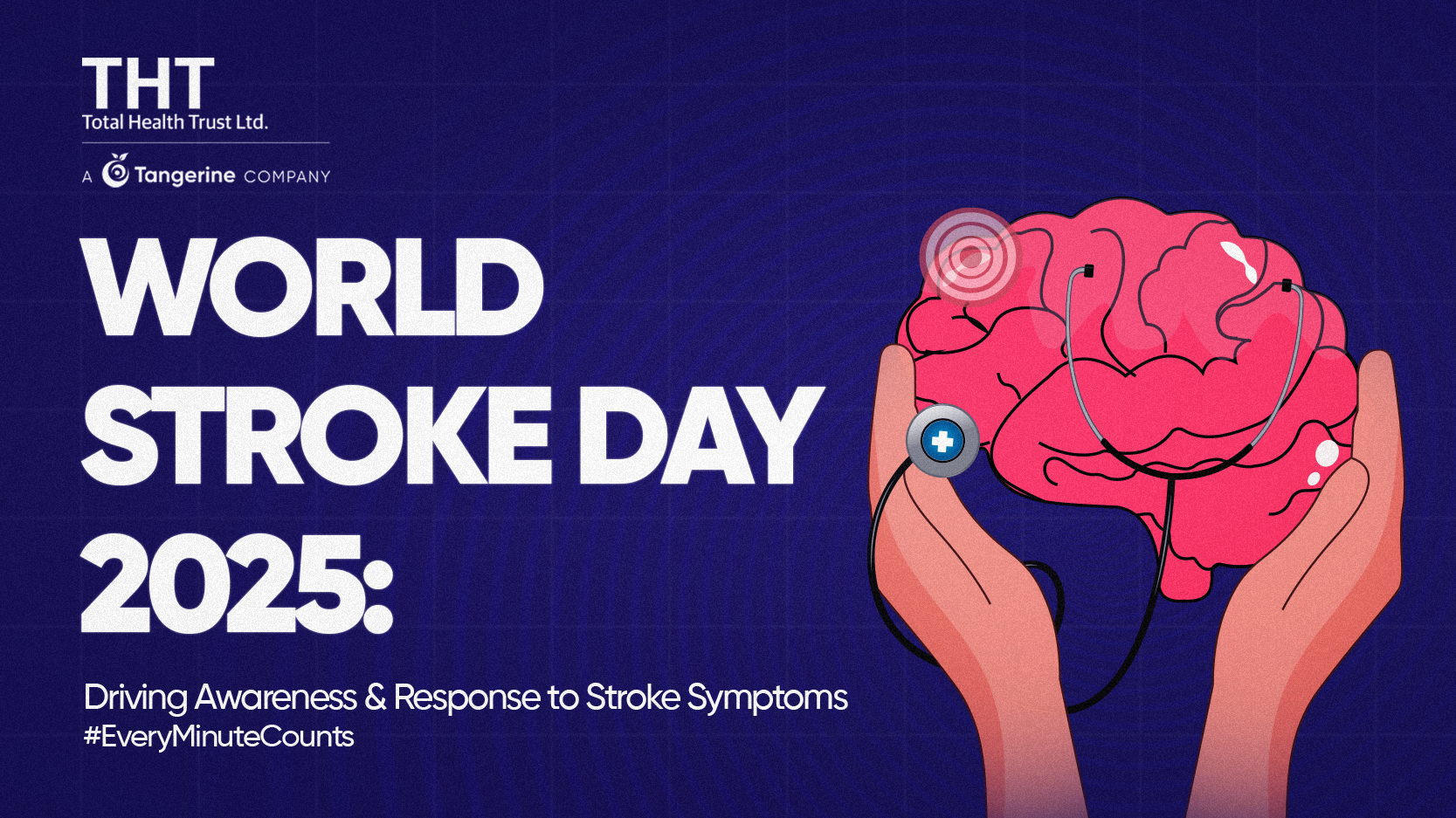
Your preferred comprehensive health insurance and well-being partner.

Your preferred comprehensive health insurance and well-being partner.

World Stroke Day is observed each year on October 29th to increase global awareness about stroke, its warning signs, and the urgent need for quick action.
The theme for World Stroke Day 2025 is “Every Minute Counts.” This theme highlights the critical importance of recognizing stroke symptoms early and acting without delay. Stroke is a time-sensitive medical emergency where immediate treatment can mean the difference between life, disability, or death
What is a Stroke?
A stroke happens when blood flow to part of the brain is cut off, either because of a clot (ischemic stroke) or a burst blood vessel (hemorrhagic stroke). Without oxygen-rich blood, brain cells begin to die within minutes.
The FAST Test
The FAST acronym is a simple tool to help everyone remember the most common warning signs:
Why the Theme Matters
The message of #EveryMinuteCounts is critical because:
1. Stroke is a leading cause of death and disability worldwide.
2. Many people do not recognize stroke symptoms, leading to dangerous delays.
3. Treatment is most effective when delivered within the first few hours of onset.
4. Awareness empowers communities to help themselves and others.
5. Quick action can mean the difference between full recovery and life-long impairment.
Reducing the Risk of Stroke
Supporting Survivors
Stroke does not end with the emergency. Many survivors face long-term challenges such as difficulty walking, speaking, or performing daily activities. Families, healthcare providers, and communities all play a role in supporting recovery and rehabilitation. Reducing stigma and providing resources can help stroke survivors live more independent, fulfilling lives.
On World Stroke Day 2025, the theme “Driving Awareness & Response to Stroke Symptoms #EveryMinuteCounts” is a call to action for everyone. By learning the warning signs, spreading awareness, and acting quickly when stroke strikes, we can save lives and reduce disability.
Together, we can build healthier, stroke-ready communities where everyone knows how to recognize a stroke and respond - fast.